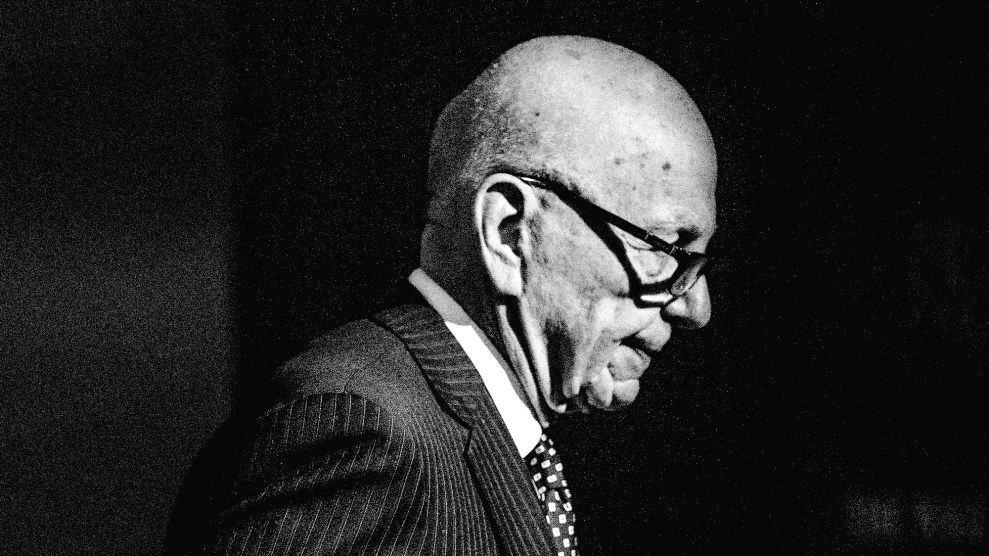There have been a lot of telling moments in Elon Musk’s takeover of Twitter, but the one that stood out to me was not one of the fireballs that tanked revenue or sent employees scrambling for the exits. It was when Musk tweeted simply, “More and more over time, as we hew closer to the truth, Twitter will earn the trust of the people.”
That was hours after Musk agreed with a comment from Dinesh D’Souza, convicted felon and serial fabulist, not long after Musk shared a baseless conspiracy theory about Paul Pelosi, and not long before he opined that the Ferguson protests in 2014 were based on a “fiction.”
How can you claim to seek truth by spreading falsehood? Simple: For Musk—and so many of the tech lords who believe they got to unbelievable wealth and power by dint of their own brilliance—the truth is what he says it is. The self-described free-speech absolutist has spent $44 billion of (mostly) other people’s money to make Twitter sound like what he wants to hear.
Truthfully, Musk has never been much of a fan of free speech. He’s fired employees who spoke out, both at Twitter and SpaceX. A blogger who mildly criticized Tesla found his car order canceled. When our friends at the Center for Investigative Reporting dug into how Tesla was failing to report serious injuries at its factory, Musk called them “extremist” and a bunch of “rich kids in Berkeley.” (Funny that that’s the best insult a billionaire can think of for a nonprofit newsroom.)
One of Musk’s first actions as Twitter’s owner was to end the blue-checkmark program that shows users whether public figures, including journalists, are who they say they are. As Musk explained it, the goal was to elevate “citizen journalism” (how?) and he warned that the “media elite will try everything to stop that from happening.” (Instead, it was corporate advertisers who freaked out.)
Then, Musk showed us what kind of “citizen journalism” he plans to elevate, handing over a bunch of internal emails and messages to two independent journalists, Matt Taibbi and Bari Weiss. The messages showed company officials wrestling with how to handle tweets about Hunter Biden’s laptop, including pornographic tweets (that, as my colleague Dan Friedman reported, in fact were part of an orchestrated disinformation campaign by a fugitive Chinese billionaire) and tweets from the New York Post. (If you haven’t been as obsessed with the laptop story as Musk, my colleague David Corn has a good backgrounder.)
You can make of these emails what you will (and people on Twitter certainly have opinions). But it’s notable how they were released: On Musk’s platform, and on his terms. To get the documents, Taibbi wrote, he “had to agree to certain conditions,” adding that “there’s a long story I hope to be able to tell soon, but can’t, not quite yet anyway.”
Twitter is Musk’s world. Journalists just get to live in it—or not. Not long after launching the #TwitterFiles, Musk went after a user who shares public data about the flights taken by famous people’s private jets, including Musk’s. Claiming @ElonJet was to blame for a stalker who followed a car with Musk’s 2-year-old in it, he suspended the account. Then he suspended journalists who reported on the resulting controversy, saying they were putting his life and family at risk.
It turned out that the car incident had played out very differently than Musk’s rendering, and that the journalists he suspended had long histories of reporting critically about his various businesses. But it didn’t matter. Musk had made clear: On Twitter, truth is what he says it is. And that’s a shame, because Twitter is—or was—a great tool for exposing yourself to other people’s truth.
The Elon in all of us
Normally, this column would stop there. But it’s the season when everything (including, thankfully, our Twitter feeds) slows down and we have a little time to reflect, so I found myself thinking about how we are all more like Musk than we care to think.
Musk himself, in one of his not-so-unhinged tweets, made this point well. About a year ago, he tweeted a graphic of 50 cognitive biases, with the admonition that it “should be taught to all at a young age.”
It’s a great list, somewhat less confusingly rendered in this post. Just a couple of excerpts that Musk (and all of us) might do well to remember:
- #2: Self-serving bias. Attributing all your successes to skill or effect and all your screw ups to bad luck or a bad situation
- #3: In-group favoritism. We tend to favor those in our in-group versus those who are different from us.
- #14: Naive realism. Thinking we have a better grasp of reality than everyone else.
- #22: Confirmation bias. We tend to look for and be more easily convinced by information that confirms our existing beliefs. (‘Tis the season for beliefs, too!)
- #25: Belief bias. Judging an argument not on its own merits but by how plausible we think its conclusion is.
- And of course, #50, the blind spot bias: Thinking we don’t have as many biases as other people.
Musk was right: All of us have these biases. What makes him different is the 51st bias—call it the Big Man bias, where you have so much money and power (and so many sycophants flattering you) that you become convinced that only you can see the obvious truth. With the Big Man bias, you can no longer correct for the other ones.
But the rest of us can—and now is a good time for that. This season, many of us are spending time with people who are convinced they know an obvious truth. And most of us are those people some of the time.
Correcting for our biases can mean a lot of things. For me, as someone who likes to share my thoughts maybe a little too much, it means listening instead of aiming to have the last word. It means trying to see things how someone else might see them (including Elon Musk).
Correcting for our biases is also a cornerstone of MoJo’s journalism. The veteran investigative reporter who taught me called it “reporting against your sources”—no matter how much you agree with a position or argument, try to prove it wrong with your reporting. (I draw the line, though, at the older version of this bromide: “If your mother says she loves you, check on it.” I love you too, mom!) Journalists have opinions like everyone else (and I’ve written about how it’s hypocritical to pretend otherwise). That’s why it’s so important to reach out to people who disagree with us, to challenge our own assumptions when we write a piece, and—at Mother Jones anyway—to have fact-checkers go through an investigative story word for word. It’s a key part of the job.
And it’s also part of my job when I talk to you, our readers. Fortunately, many of you are not shy about your opinions, so I get to hear when you disagree with something we’re doing: When you feel our headlines are too snarky, our stories too long (or too short), when you believe we’re missing an important issue or covering another too much. Some of you are upset when we try to report with empathy about Trump voters; some feel we should have been much nicer to Bernie Sanders; many of you have strong opinions on universal health care, the police, population, and more.
But you are all here nonetheless, and that tells me that you, too, believe in the value of information that challenges you. Which is pretty special given that the internet is full of stuff designed only to validate your biases—to make you feel more outraged, more fearful, more morally superior.
Mother Jones is not built on that. Instead, we trust that there are enough of you dedicated to the truth, even if it runs counter to your biases, to support our work and help us make it available to everyone—especially those who disagree.
That makes you smarter than Elon Musk. It also makes you amazing. Thank you.









